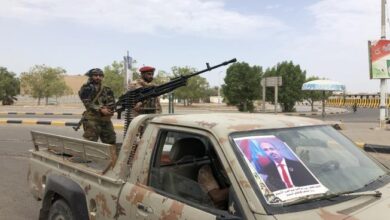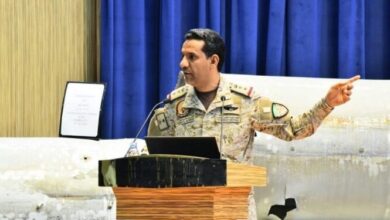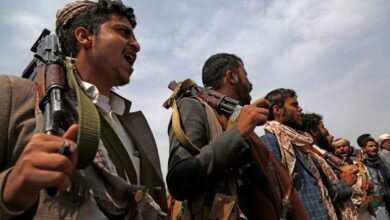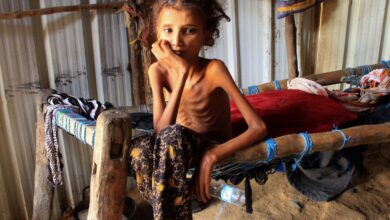Daily biases Houthi attacks while House Saud helpless
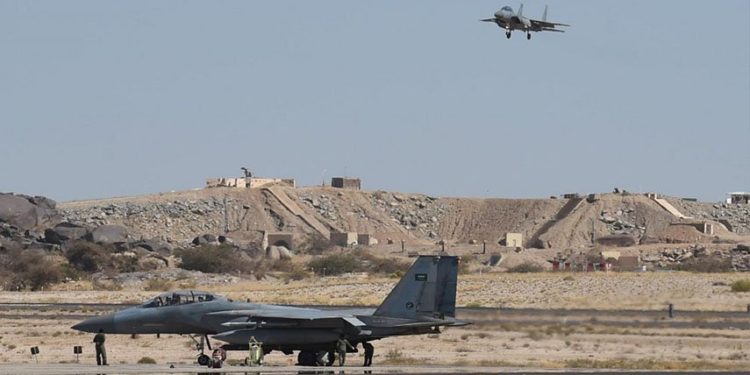
Ansar Allah Group (Houthis) in Yemen has imposed a new reality on the Kingdom by launching daily attacks amid the growing inability of the Saudi regime to repel such attacks and protect the kingdom’s facilities and capabilities.
In the latest development, the Houthis announced a large-scale air attack by drones at King Khalid Air Base in Khamis Mushait, south of the kingdom.
Houthi forces spokesman Brigadier General Yahya Sari said in a statement posted on his Facebook page that the attack was carried out by drones of 2k bombers.
He added that “the attack targeted the communications building at the air base, and the process of targeting was direct.”
He pointed out that the operation came within the “framework of legitimate response to the crimes of aggression and the ongoing siege,” referring to the attacks led by the Arab coalition led by Saudi Arabia.
Yesterday, the Houthis’ Al-Masirah TV announced that the air force had carried out an attack on Abha airport and King Khalid base in the south of the kingdom, which is within the reach of daily Houthi attacks.
The Houthis revealed two days ago the development of four new air defense systems, half of which entered the front line with the Saudi-UAE alliance.
The Houthis said they had launched a large-scale drones attack on the King Khalid base, targeting warplanes and take-off runways, but the Saudi Press Agency reported that coalition forces shot down drones launched by the Houthis towards the Kingdom.
Al-Qaeda itself has also been bombed by Houthi last Thursday, and Abha airport has been bombed recently by the group several times.
The Saudi-led coalition has intervened militarily in the Yemen war since March 26, 2015 under the pretext of restoring legitimacy in the country, after the Houthis seized power in the capital Sanaa and large areas of the country.
The military operations carried out by Houthis during the last two months with drones and ballistic missiles show that the damage to Saudi Arabia economically and militarily has a great and increasing cost, especially as the shelling hit large economic and service institutions, such as oil installations, airports and military bases.
The balance of power is tilted in favor of the Houthis, despite the Saudi air superiority, and military and political support provided by the United States and Western parties to Riyadh.
While Riyadh is hiding its losses inside its territory, the Houthi strikes inside Yemen hit its targets and caused great damage, including the Security Belt Forces bombing in Aden that left 40 people dead, includingg the military commander of the forces, “Abu Yamamah.”
Despite public overtures, there is evidence that the Kingdom held secret talks with the Houthis, including the direct and the UN envoy to Yemen, Martin Griffiths, played a role in which.
After a brief breakthrough, the last round stumbled over Houthis conditions and Iranian interventions to drag Riyadh into open talks with Tehran, such as Abu Dhabi, which was not opposed by Crown Prince Mohammed bin Salman, who is looking for a dialogue that ends in a compromise. The Houthi party aspires to substantial reparations for the damage the war has inflicted on Yemen’s infrastructure, economy and urbanism, as well as compensation for the victims of what has befallen the Yemeni people, which is described as the worst humanitarian crisis in the world.
Iran, in turn, is looking to force the Kingdom to withstand the consequences of escalation against it in recent years, including operations that Tehran accuses Riyadh of planning.
It is noteworthy that the Kingdom is in a critical position, after the UAE decided to withdraw its forces from Yemen, and began steps closer to Tehran.

